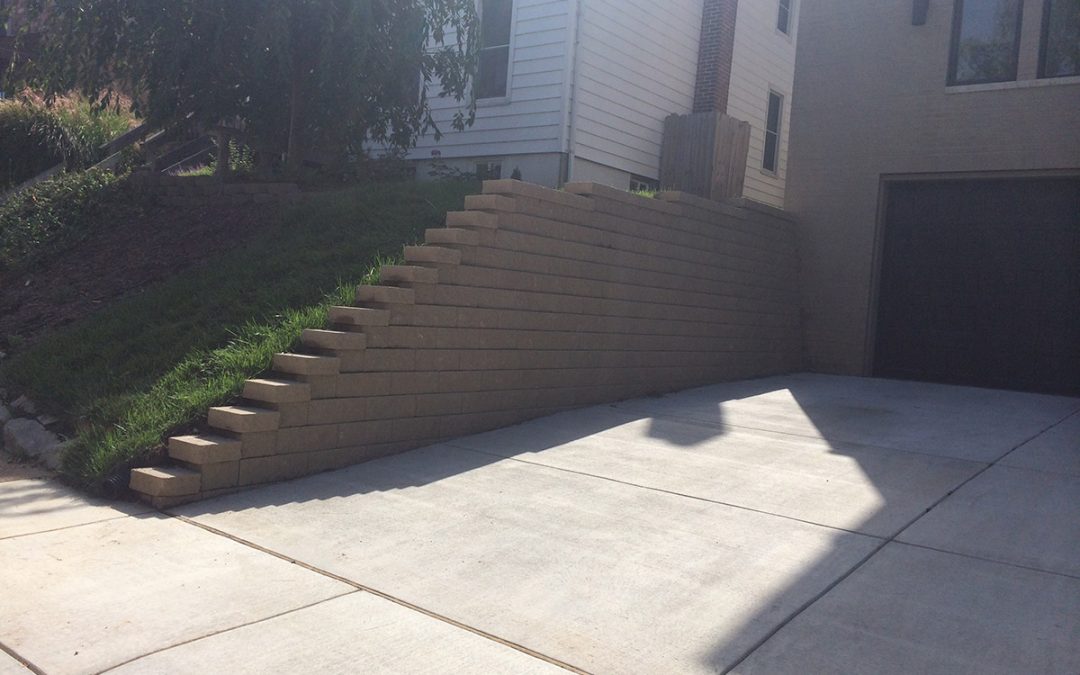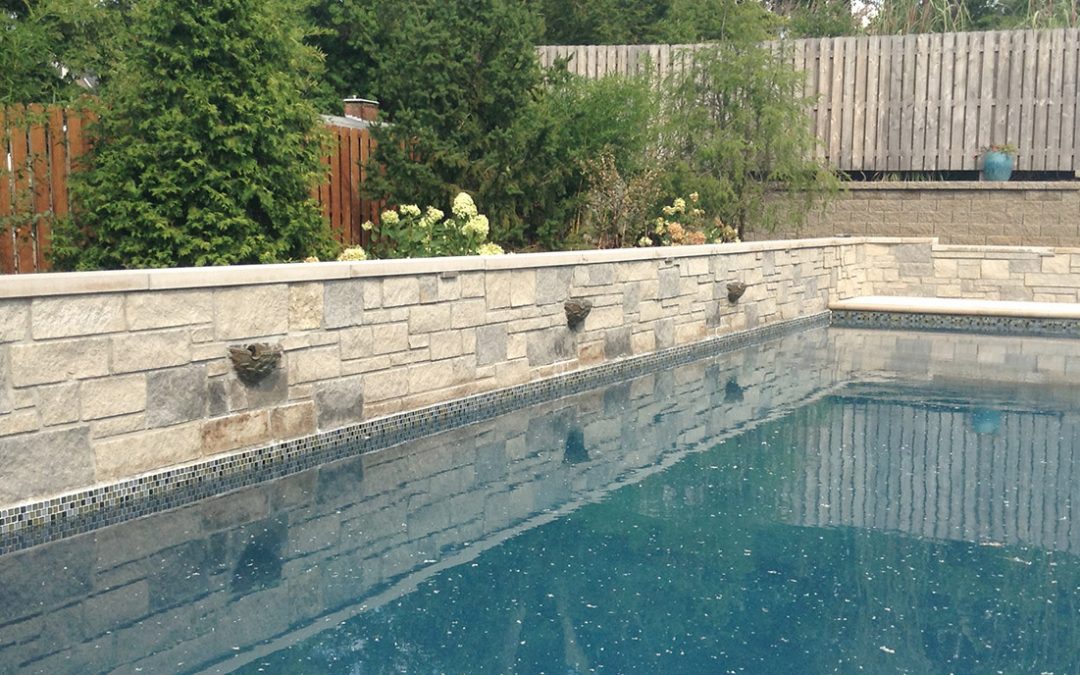
Jul 20, 2020 | hardscape, landscape, landscaping, lanscape company, retaining wall
You are looking at your home in all its homeliness and just think to yourself, “This house is the best house in the world, and nothing can possibly destroy it.”
Well, not so fast. There is a secret menace that lurks in the wind and water that is plotting to destroy your home.
This villain’s name? Soil erosion, and it can wipe your home off the face of the earth in a matter of minutes.
But how does soil erosion work its horrible magic? When torrential rain comes falling, it lands on the ground, right? Well, when there is a slope in your yard, that water goes down that slope, taking soil along with it, which can cause your abode to be flooded with water, causing thousands in damage to your home.
But do not fear, as there are many things you can do to keep your house safe. One of the most effective of these is the use of a retaining wall to keep that soil from being swept away.
But what is a retaining wall? Think of a retaining wall as a sort of dam for soil that keeps it where you want it to be. Most of the time, they are used to prevent water from sweeping soil and nutrients down a slope and careening towards your house, causing severe damage to your home. Essentially, they are a simple way to prevent flash flooding that can wreak havoc on your house.
They can be made of just about anything that is strong enough to keep soil at bay, so anything from simple bricks to large rocks is fair game to make a retaining wall with.
But retaining walls do not just keep soil from moving. A good retaining wall needs to satisfy the following requirements:
It can hold soil in place
It can drain away water and channel it properly
If your retaining wall satisfies both, your defenses are nice and strong, and you can rest assured that your house is safe. They can also serve a decorative purpose as they can be used to create multiple terraces on which you can grow a garden to give yourself another layer of protection. If you are still anxious after using these techniques, you can use other methods like natural barriers to keep water away from your home.
So, retaining walls do sound like a good idea, but should you build your own retaining walls? It can be done given the right amount of time and lots of research, but you should seriously consider what is at stake: your own home. An improperly built retaining wall can make the problem worse than it already is and lead to severe damage, particularly to your basement and foundation.
It is a much better idea to enlist the services of a respectable contractor like Fritz Stoneworks. Contact them at 636-861-1530 to enlist their services to help you keep your home safe from soil erosion and its horrific effects.

Jul 9, 2020 | hardscape, home appeal, landscape, landscaping, lanscape company, retaining wall
Happy to be home right now? What if your home just disappeared suddenly?
Unfortunately, this happens quite often due to an unlikely foe: soil erosion. On average, 75,000 Americans are driven from their homes due to flash flooding from soil erosion every year.
This is an appalling statistic that should not exist. Luckily, there are things we can do to keep things like this from happening. One thing we can do is install a retaining wall that holds soil in place and channels water away from your house, keeping you and your family safe from flash flooding.
But what is so special about retaining walls? Here are five reasons why you should invest in a retaining wall installation as soon as possible.
They are a great decorative feature.
Retaining walls do not have to be boring and bland. In fact, it is encouraged to make retaining walls look good in whatever way possible. Whether it be a terrace garden, LED lighting, or interesting materials, anything that does not sacrifice the ability to hold soil in place or channel water away from your home is fair game.
They prevent sinkholes.
Let’s face it, sinkholes are terrifying. At the drop of a hat, one could open under you and you could never be seen again. One man was swallowed up by a sinkhole while he was sleeping, never to be seen again.
Thankfully, retaining walls are particularly good at preventing things like this from happening. They do this by keeping soil where it should be and by keeping pools of water from forming, which makes sure the conditions needed for a sinkhole do not happen in your backyard.
It can make your property more manageable.
Getting a retaining wall for your property is one of the best ways to prevent soil erosion from wreaking untold havoc on your property. It does this by not only keeping wet soil in one place, but also channels water in a way that directs away from your house, keeping any erosion that takes place away from your home and out of mind, giving you confidence that your home will be safe from a flash flood.
It raises your home’s resale value.
Since retaining walls can be dolled up to look as good as possible, they can help your home attract far more prospective buyers when it comes time to sell. It shows them the property was well cared for and that it is a safe place to live, driving up its value as a result.
It can create more space.
If your yard is very hilly, a retaining wall can free up space for you to use. You may be thinking, “Wait a minute, wouldn’t that reduce the space you have?” Well, there are many outdoor activities that require a flat piece of land, like gardening. A retaining wall can open up flat land your gardening partner or relative can use to train their green thumbs.
So as you can see, retaining walls have plenty of benefits that you will definitely appreciate in your life. If you want to learn more about other benefits like these, contact Fritz Stoneworks at 636-861-1530 to learn how a retaining wall may be just the thing you need.


